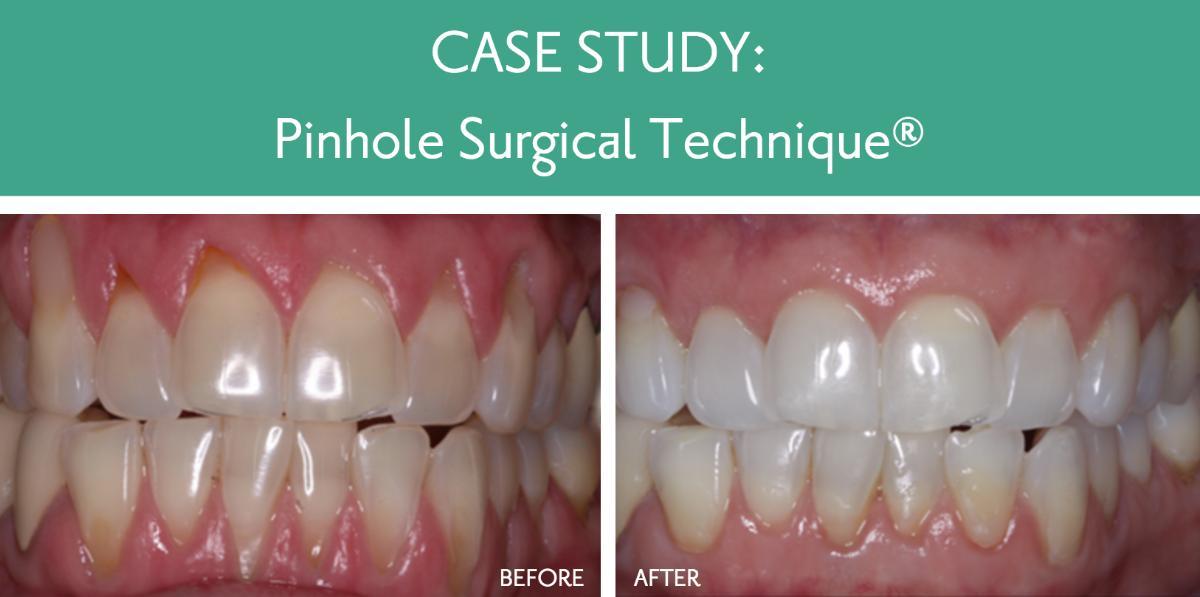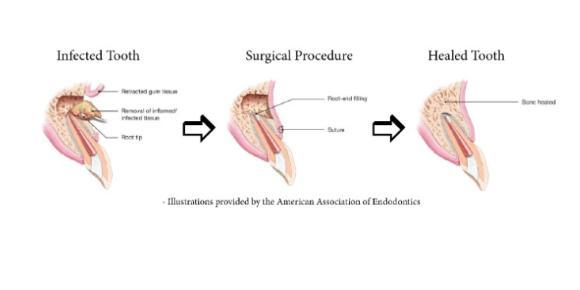
5 Signs You May Need Endodontic Surgery
January 14, 2019
How to Properly Treat Your Receding Gums
November 9, 2019If you have had a root canal in the past and that tooth is now painful or swollen, you may need an apicoectomy. An apicoectomy is a procedure used to treat teeth that have suffered infection or bone loss from failed root canal treatments.
Dr. Faghih at Cascadia Dental Specialists specializes in endodontics, and performs apicoectomies to save natural teeth. This procedure is needed when an infection develops at the very tip of the root (or apex) of the tooth. Additionally, this new and high-tech procedure can save infected teeth, rather than having them extracted. Here’s how.
[Related: CT Scans for Root Canal Issues]
Why Would You Need an Apicoectomy?
Teeth are held in place in the mouth by their roots, and have one to four roots each. Nerves and blood vessels enter the tooth at the tip of the root, travel up and down the root canal of the tooth, as well as in the pulp chamber of the tooth, which is within the crown.
A root canal procedure is performed starting from the crown inward, where an infection within the root canal is cleaned out and the canal itself is filled and sealed from the surface.
Sometimes infected tissue can remain within one of the canals, or become re-infected years later. This is where endodontic microsurgery, such as apicoectomy, comes in to help.
Endodontists can perform a microsurgery under a microscope to completely eliminate the infection and literally save the natural tooth.
Apicoectomy Procedure
The doctor will numb the gum area surrounding the tooth with a local anesthetic, and make a small incision through the gum to the tip of the tooth. They will them remove all of the infected tissue around the root and the root tip itself.
Dr. Faghih at Cascadia Dental Specialists uses state-of the-art technology such as an operating microscope and ultrasonic instruments. The light and magnification allows him to see the area clearly to remove the entire infection.
A filling is then placed in the tip of the root to seal off the root canal and a stitch is placed in the gum tissue to close the incision. This procedure allows the bone tissue to heal around the root.
Apicoectomies are a permanent solution, designed to preserve natural teeth rather than having them pulled.
[Related: Addressing Common Concerns About Root Canals]
How Long Do Apicoectomies Take?
The procedure itself takes about 30-90 minutes. Your gums may experience swollenness and soreness for a few days afterward, and stitches are removed in about four days.
Apicoectomy Recovery
Post-operative care is essential to prevent complications or infections after an apicoectomy.
Recovery tips include:
- Apply cold compress to the area occasionally during the 10-12 hours after surgery.
- Avoid strenuous activity.
- Take over-the-counter pain medication (like ibuprofen) if uncomfortable.
- Avoid crunchy or hard foods.
- Avoid brushing your teeth & gums.
- Don’t smoke.
- Listen to any other advice from Dr. Faghih (or your doctor).
[Related: Five Signs You May Need Endodontic Surgery]
Do I Need an Apicoectomy Procedure?
Things to consider in deciding on this treatment:
- Are you experiencing tooth pain in a tooth that has had a root canal in the past?
- Is your tooth sensitive to hot or cold?
- Do you have swelling around the teeth or gums?
If you’re experiencing any of these symptoms, please call Dr. Faghih at 425-644-7444 or contact Cascadia Dental Specialists today to set up an appointment.





